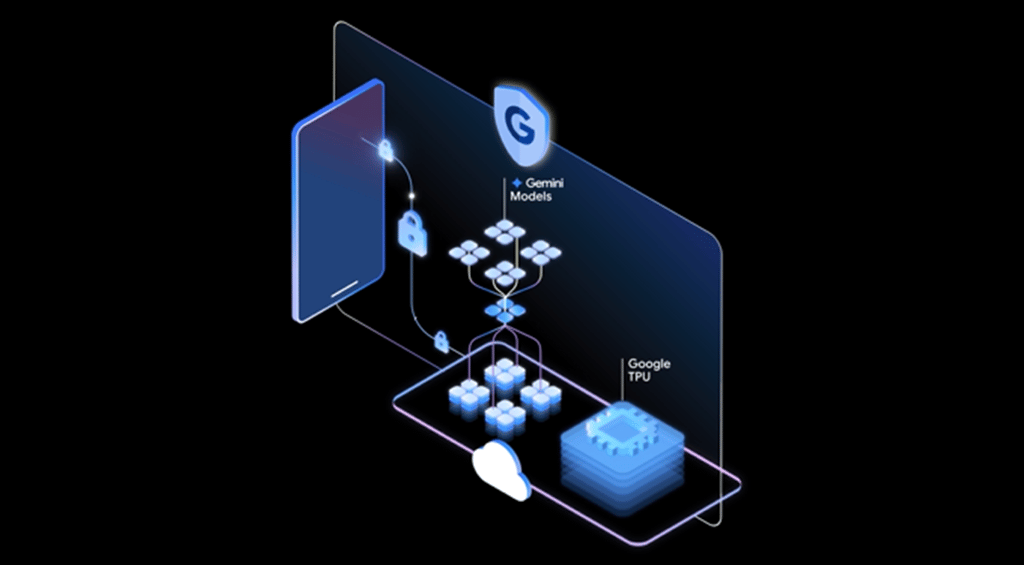The private cloud market is complex because the very definition of “private cloud” is diverse and, frankly, confusing. A private cloud could be a completely in-house deployment, or it could be a private cloud hosting in a remote data facility – or some combination of those two scenarios.
When it comes to the private cloud, the list of industry leaders is focused on growth. There’s an industry competition between AWS vs. Azure vs. Google, with other key players including IBM Cloud and Oracle Cloud.
For more information, also see: What is Cloud Computing
Best Private Cloud Providers
Top Private Cloud Providers Comparison Chart
|
Scalability |
Networking |
Flexible Integration |
Strengths |
Pricing |
| HPE |
X |
|
|
Varied Solutions |
Pay-as-you-go |
| VMware |
X |
X |
X |
Migration |
Product levels |
| Dell Tech |
|
X |
|
Automation |
Calculator/Call sales |
| Oracle |
X |
X |
X |
Scalability |
Free tier or pay after 30 days |
| IBM/Red Hat |
|
|
X |
APIs |
Free tier/estimates average cost |
| Microsoft |
|
|
X |
Data centers |
Free tier/Pricing Quotes |
| Cisco |
X |
X |
X |
Cybersecurity |
Prices vary |
| Netapp |
|
X |
X |
Storage |
Contact sales |
| AWS |
|
|
X |
Control |
Payment calculator |
For more information, also see: Public Cloud Computing Providers
Hewlett Packard Enterprise (HPE)
Best for Multiple Solutions
By most estimates, Hewlett Packard Enterprise (HPE) is a key leader in the private cloud market. The company touts its ability to offer bespoke private cloud offerings, using a mix of cloud applications and infrastructure tools to fit a client’s individual needs. Companies can then use this platform as part of a hybrid or multicloud solution.
HPE’s private cloud offerings span hardware, software, and services.
Pricing
For HPE’s private cloud, HPE supports a pay-as-you-go model. For more on pricing, go to HPE’s How To Buy page.
Features
- One infrastructure for any workload can manage one infrastructure that supports current- and next-gen apps.
- Deploying at cloud-like speed and scale can accelerate application and service delivery through a single interface.
- Automate everyday operations that can help eliminate costly silos, free up resources, and simplify IT operations using a single software-defined infrastructure.
- 360-degree security gives a user the experience of an enhanced, holistic, 360-degree view of security.
Pros
- Positive initial setup.
- Helpful customer support.
- Great scalability for users.
Cons
Visit HPE
For more on HPE’s cloud portfolio: HPE: Cloud Portfolio Review
VMware
Best for Migration
VMware is arguably the “original” private cloud company. In the early days of the cloud, many companies simply fully virtualized their data center and called it a private cloud. In today’s cloud world, VMware is often thought of as a “bridge” between the private and public cloud worlds.
It also offers the vRealize Suite Cloud Management Platform, which can manage both private and hybrid clouds, and Cloud Foundation, a software-defined data center platform designed for private clouds.
Pricing
There are no free trials or pay-as-you-go, but VMware does provide separate product levels. For pricing, go to the VMware Store.
Features
- Maximizes monetization opportunities with hosting partner cloud solutions.
- Offers simple cloud migration capabilities.
- Provides visibility with system monitoring, fraud, and reporting for company security.
- Increases developer productivity and eliminates downtime to provide a positive experience for users.
- Ability to create a hybrid cloud for users who want to use both public and private clouds.
Pros
- Life cycle management.
- Modernize or build new applications.
- Strong disaster recovery.
Cons
- Documentation could be better.
Visit VMware
For more on VMware’s cloud portfolio: VMware: Cross-Cloud Review
Dell Technologies
Best for Automation
A long-term, established vendor in the private cloud market, Dell Technology’s APEX provides a turnkey developer platform that offers a broad mix of tools. Additionally, the company has an alliance with Microsoft, to offer a solution for the Azure Stack, which is a dedicated hardware solution for the private cloud.
In a broad sense, Dell’s private cloud offerings include virtual private cloud services, cloud management, cloud security software, and an array of cloud consulting services.
Pricing
For pricing, go to Dell’s Store page. Dell offers a pricing calculator for customers to find exactly what they will pay for.
Features
- Automate and orchestrate cloud operations using intelligent lifecycle management (LCM).
- Modernize applications by deploying a Kubernetes platform to capitalize on new enterprise applications.
- Operationalize a user’s edge for workloads across multiple cloud environments.
- Gain more flexibility and support a range of workload requirements through scaling.
Pros
- Fewer vulnerabilities through the infrastructure.
- Helpful forecasting capacity.
- Strong dashboards.
Cons
- Difficult to integrate non-Dell products.
Visit Dell
For more on Dell’s portfolio: Dell Technologies: Streaming Data Platform Review
Oracle
Best for Scalability
Oracle has been investing heavily in the cloud sector and has turned itself into a real player in the last few years. The company’s Private Cloud Appliance takes a hardware-supported approach to crunching data and workloads in a mixed environment – critically important in today’s multicloud world.
Oracle’s Private Cloud solutions include its Cloud Platform, applications, infrastructure, lifecycle management tools, and integration services. It also offers Managed Cloud Services.
Pricing
Oracle’s pricing begins with the ability to use a free tier, ensuring that companies receive and see exactly what is needed. For pricing, go to Oracle Cloud Free Tier.
Features
- Prebuilt for quicker deployment providing integrated infrastructure, virtualization, and management speeds deployment times.
- Simple integration management by using built-in, full-stack management, and patching speeds application deployment while reducing workloads.
- Dividing portions to reduce cost using fixed VM shapes allow companies to license software on small portions of the Private Cloud Appliance.
- Storage speed diversification with the use of Oracle ZFS Storage Appliance tightly integrated into every private cloud appliance.
Pros
- Provide centralized financial reporting.
- Helpful inventory management.
- Easy scaling up and down process.
Cons
Visit Oracle
For more information: Oracle Opens Cloud Region in Chicago
IBM/Red Hat
Best for APIs
In a bold move to boost its cloud portfolio, IBM acquired open source pioneer Red Hat in 2018. Red Hat’s private cloud offerings include the Red Hat Cloud Suite management and development platform, Cloud Infrastructure software, CloudForms cloud and container management software, Red Hat Virtualization, and Red Hat Gluster Storage. Of particular note is Red Hat OpenShift, which is a flagship part of its offering that enables cloud deployments in many different ways. The company also offers a variety of services to help customers deploy and manage private and hybrid clouds.
Additionally, IBM’s private cloud solutions include hardware such as IBM Systems and IBM Storage, hosted private cloud services, IBM Cloud Managed Services, cloud security tools, and software like Cloud Manager and Cloud Orchestrator. It also has cloud solutions and services for its System z mainframe platform.
Pricing
IBM and Red Hat’s partnership allows users to use a free account with $200 credit and 50+ products on the free tier. For more pricing information, go to Red Hat OpenShift on IBM Cloud Pricing page.
Features
- Key management is especially helpful when organizations want to go beyond the default Kubernetes encryption, managed OpenShift offers two additional layers: IBM Key Protect and IBM Hyper Protect Crypto Services.
- Vulnerability advising increases security and prevents errors because the insights provided allow admins to fix the vulnerabilities.
- Configuration offers users automatic scaling, backups, and failure recovery.
Pros
- Strong control system monitoring.
- Integrated OpenShift APIs.
- Quick system functions.
Cons
- Can be difficult to learn.
Visit IBM
For more information on IBM: Data Science Q&A With Aakanksha Joshi of IBM
Microsoft
Best for Data Center Infrastructure
While Microsoft runs a solid number two to AWS in the cloud market overall, Microsoft is arguably the leader in the private cloud market. A large cohort of legacy, Windows-centric organizations use Microsoft components in their private cloud deployment.
Indeed, many private clouds run on Microsoft’s Windows Server operating system and its Hyper-V virtualization technology, which is integrated into Windows Server. The company is pursuing a hybrid cloud strategy, which encourages enterprises to integrate private clouds in their data centers with the company’s Azure public cloud computing service. To that end, it offers Microsoft Azure Stack, which allows companies to replicate the Azure service in their own data centers.
Pricing
Microsoft has a pay-as-you-go plan as well as a free account to start using the private cloud. For pricing, go to the Virtual Network Pricing page.
Features
- Extends a data center to the cloud by securely connecting to a virtual network with an IPsec VPN or a private connection.
- Build sophisticated network topologies by creating an advanced overlay architecture on top of Azure resources and services.
- Manage virtual networks at scale to reduce operational overhead by centrally managing virtual network resources.
- Gain flexibility for building apps by using virtual networks to combine platform as a service (PaaS) and infrastructure as a service (IaaS) resources.
Pros
- SD-WAN access with Azure.
- Contains BOT Services, Computer Vision services, and ML frameworks.
- Provides an end-to-end life cycle.
Cons
- Expensive for small and medium businesses.
Visit Microsoft
For more on Microsoft’s portfolio: Microsoft: Azure Batch Review
Cisco
Best for Private Cloud Security
Cisco, the giant in networking, has an extensive offering of tools to increase the efficiency and capability of the private cloud. Tools, for instance, that inventory your cloud or data center-based applications. And tools that are geared for end-to-end security, focused on the enterprise’s inevitable development into a multicloud environment.
While best known for its networking hardware and solutions, Cisco also offers a variety of cloud software for analytics, infrastructure automation, cloud management, orchestration, development, and cloud security. Those offerings include its Cisco ONE Enterprise Cloud Suite, Cisco CloudCenter and the Metapod, a production-ready cloud stack that Cisco deploys and operates in enterprise data centers.
Pricing
Pricing can vary based on what elements a company wants. For pricing, go to Cisco Commerce.
Features
- On-demand infrastructure can make deployments more consistent, repeatable, and automated.
- Unified workload control drives utilization and can reduce costs on-premises or in the cloud across hypervisors and containers.
- Container management allows customers to automate whatever they need, especially repetitive tasks.
- Application performance management monitors every line of code and lets every user see every transaction, giving more visibility.
Pros
- Flexible integration.
- Scalability.
- Advanced security measures.
Cons
- Subscription payments only.
Visit Cisco
For more on Cisco: Cisco Report Shows Cybersecurity Resilience as Top of Mind
NetApp
Best for Private Cloud Storage
A strong vendor in the storage market, NetApp also touts its scalable, cloud-like deployments for private cloud, and does have a significant presence in the cloud market. Its goal is to provide a solution that enables organizations to perform at scale, efficiently and with no undue complication – “simplify and automate” is a key phrase.
NetApp’s private cloud storage offerings include NetApp Private Storage (NPS), the AltaVault Cloud-Integrated Storage backup solution that can run on public or private clouds, and StorageGRID Webscale Object Storage, which also runs in public or private clouds. It also offers NetApp Private Storage for Cloud and FlexPod converged solutions, which combine hardware from NetApp and Cisco and can be used in private cloud environments.
Pricing
For pricing, go to NetApp’s How To Buy page. It offers both contact information and trials of different products.
Features
- Unparalleled flexibility allows companies to run all their workloads on a single platform ensuring optimization and storage across the cloud.
- End-to-end automation helps speed up deployment times while it simplifies daily operations.
- Flexible consumption minimizes the risk of a company’s investments and receives the benefits of the private cloud.
- Operational efficiency simplifies the deployment and management of a company’s infrastructure.
Pros
- Multicloud environment support.
- Visibility with dashboards.
- Ease-to-use for simple functionality.
Cons
Visit NetApp
For more of NetApp’s portfolio: NetApp: Storage Portfolio Review
Amazon Web Services (AWS)
Best for Admin Control
The undisputed leader in public cloud computing, Amazon Web Services (AWS) has warmed up to the private cloud offering as the other vendors on this list – and the market as a whole – have maintained a major on-prem deployment.
AWS offers a Virtual Private Cloud (VPC) service that runs on its public cloud infrastructure. VPC allows organizations to isolate their cloud instances from those of other organizations to meet security and compliance needs. VPC also gives administrators greater control over the cloud environment, and it provides the option to create a Hardware Virtual Private Network (VPN) to connect enterprise data centers with AWS.
Pricing
For pricing, go to the AWS Pricing page. They have options such as a payment calculator and what products a company might use.
Features
- IP addressing enables company resources to communicate with each other and give resources on the internet.
- Ingress routing allows a company to route any incoming and outgoing traffic to or from the internet or a company’s private network.
- Network manager gives companies tools to help with network management, and the manager also enables companies to monitor their network.
- Security groups can be created to act as a firewall to control inbound and outbound traffic for the company.
Pros
- Scalable.
- Ease-of-use.
- Secure cloud.
Cons
- Prices can vary considerably based on context.
Visit AWS
For more information: AWS vs. Azure vs. Google Cloud
Bottom Line: Private Cloud Computing Providers
Now that public cloud computing is fully mainstream for businesses of all sizes, some experts forecast that private cloud will fade away. As companies offload a greater percentage of their infrastructure to the public cloud, building and maintaining a private cloud is seen as less desirable.
On the other hand, the private cloud sector remains strong. At the least, businesses need to hold some data in-house for compliance purposes, so that the private cloud will always have a place.









